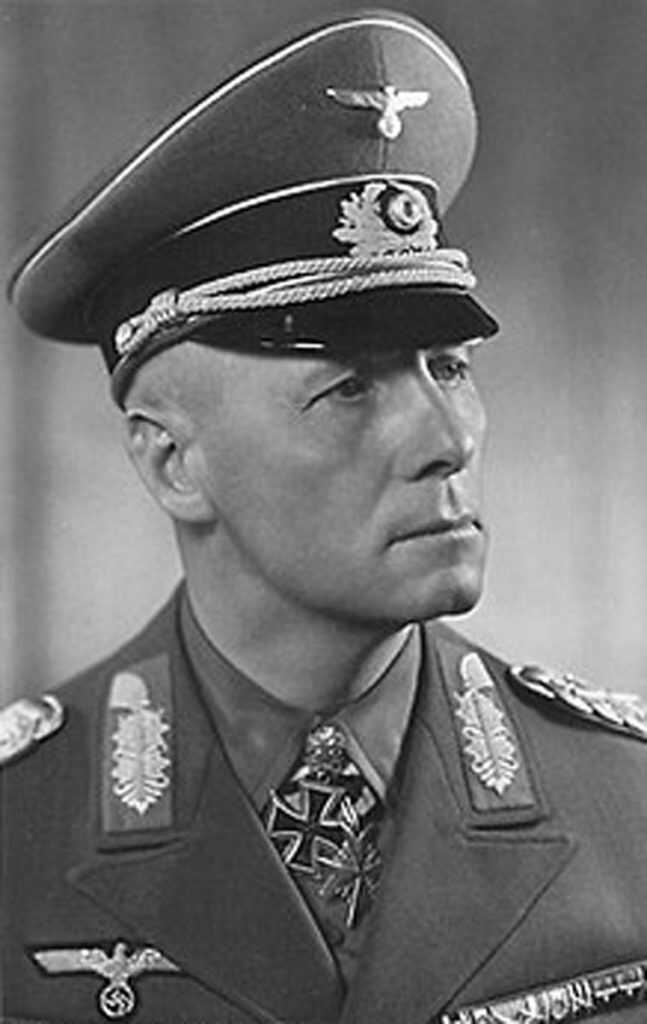
Field Marshal Erwin Rommel, the Desert Fox, was in overall command of defensive operations in the West.
By the summer of 1944, everybody in Europe knew the British and Americans were coming. Construction units swollen with slave labor and ultimately commanded by the legendary German Field Marshal, Erwin Rommel, had transformed the western coast of France into a fortress. However, military history is flush with examples of fixed fortifications being circumvented, crushed, or ignored. The real German defense hinged upon more mobile stuff.
The German Panzer Division was arguably the most feared combat formation of the Second World War. These heavily armored and highly mobile units formed the spearheads that provided the world with its rude introduction to Blitzkrieg or Lightning War. In defensive applications, these armored units could respond to threats as they arose and bring heavy weapons to bear when and where the newly landed Allies were most vulnerable. For this plan to be effective, however, the Germans needed bold decisive leadership.
While the Panzer Divisions of 1944 employed the most powerful tanks in the world, they were also led by a seasoned cadre of combat veterans who had learned their craft on the bloody frozen steppes of Russia.
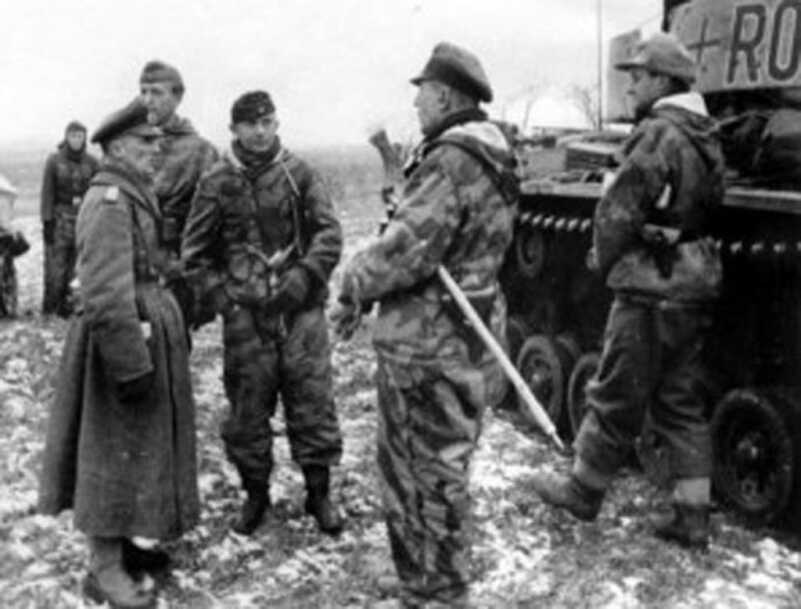
More important than their wonder weapons were the cadre of battle-hardened German military leaders who led the Wehrmacht at all levels. Many of these seasoned veterans had earned their spurs on the bloody Eastern Front.
These fortunate few survivors had emerged from places like Stalingrad and Kursk with the most finely honed combat acumen of any of the world’s military leaders. The hard-won tactical skills they possessed made these elite soldiers strategic assets for the Axis forces defending France.
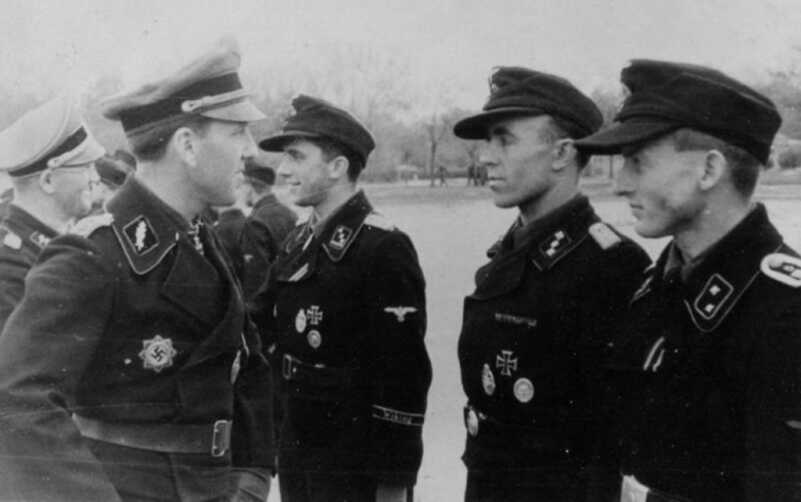
On a fateful night before the Allied invasion, the leadership of one of the defending Panzer units was hard at work planning for coming operations.
On the night of June 5th, 1944, a group of German commanders and logisticians from one of the Panzer Divisions tasked with the mobile defense of Normandy, France, was in need of space to assess and plan. They subsequently requisitioned the premises of a nearby French country manor for this purpose.
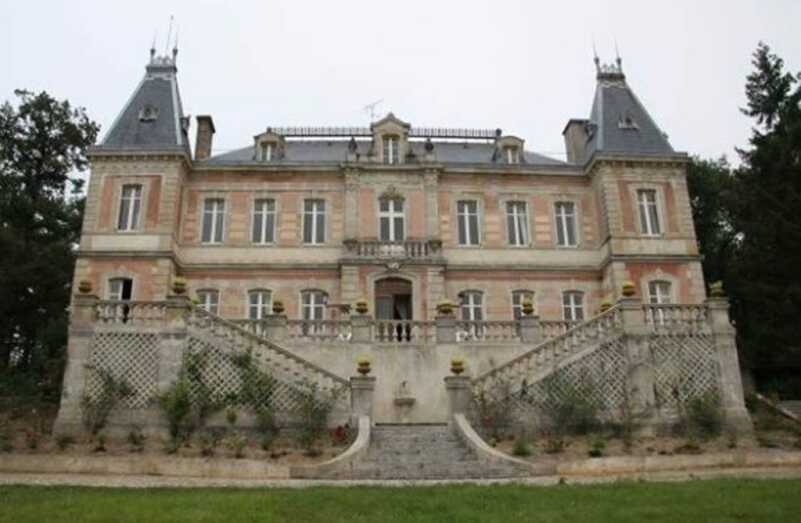
The Germans commandeered whatever homes or resources they needed to support their military objectives.
The house had previously served as a hotel and restaurant, and the German officers appreciated the spacious environment as well as the copious food and drink.
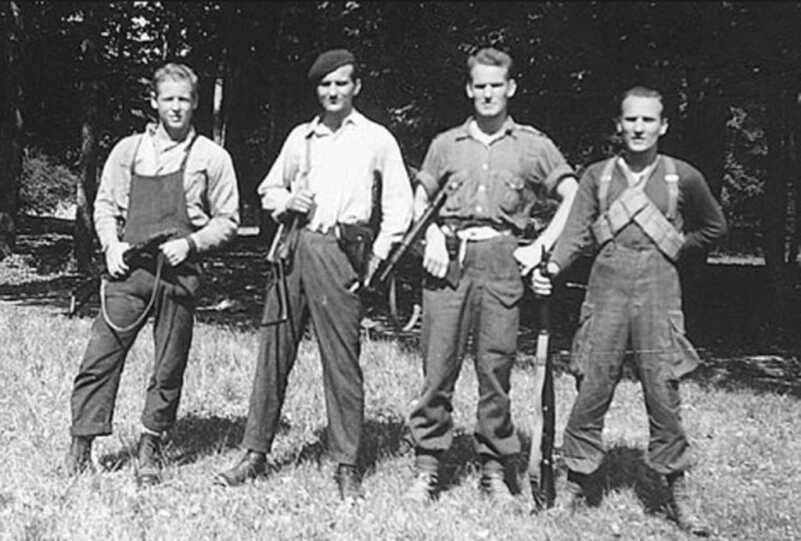
The French Underground was a disseminated resistance army awaiting the invasion to strike German military targets from the sides and rear.
The kitchen and wait staff of the house promptly provided the Germans with bread and coffee. Despite the fact that they had invaded France militarily, the German propaganda machine still told members of the Wehrmacht that they would be fighting for a united Europe against the interlopers from the UK and the US. On a certain level, the Germans actually expected the occupied French to be sympathetic to the Nazi cause.
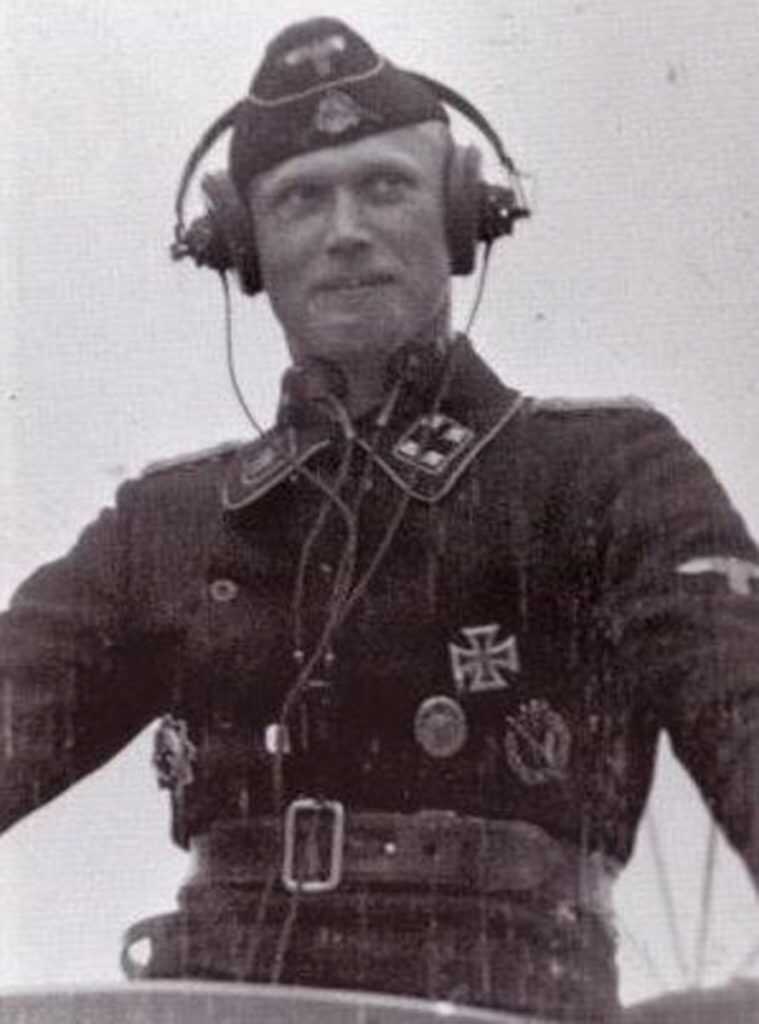
In the early morning of June 6, 1944, one tired young German officer was about to meet a grisly fate.
One sharp young Hauptman of the Panzerwaffe was busy with the myriad details of mobilizing his armored force to respond to the invasion he knew was coming. Having gone without sleep for some time leading up to this fateful morning, now June 6th, the Nazi tank Captain was clearly exhausted. One of the manor’s waitresses approached the German officer and offered him a room in which to rest. Whether the man left with the girl to get a little sleep or something more has been lost to history.
Over time, the Hauptman’s presence was missed, and a German Military Policeman named Niklaus Lange went searching through the expansive house for him. Finding all of the French staff mysteriously absent he pushed into a bedroom and recoiled at what he saw. The German Captain lay facedown on the bed, his blood and brains staining the white sheets and surrounding walls. He had suffered a large caliber gunshot wound to the side of the head at near contact range. The exit wound produced by the fat heavy bullet had removed the front quarter of his skull and liberally papered the room with gore. On the floor beside the body was a peculiar single shot pistol.
The FP-45 Liberator
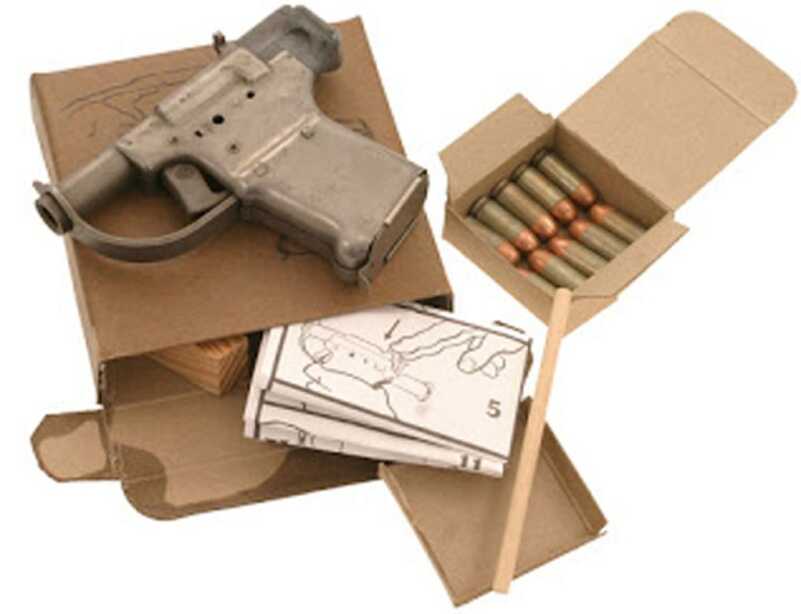
The FP-45 was part of a small parcel intended to be airdropped behind enemy lines to resistance fighters.
The FP-45 was the result of a highly classified program intending to arm partisans operating behind enemy lines with what was essentially a disposable firearm. The FP-45 drew its name from a tidy bit of subterfuge. The weapon was originally contracted as a Flare Projector to hide its true nature from the Axis.
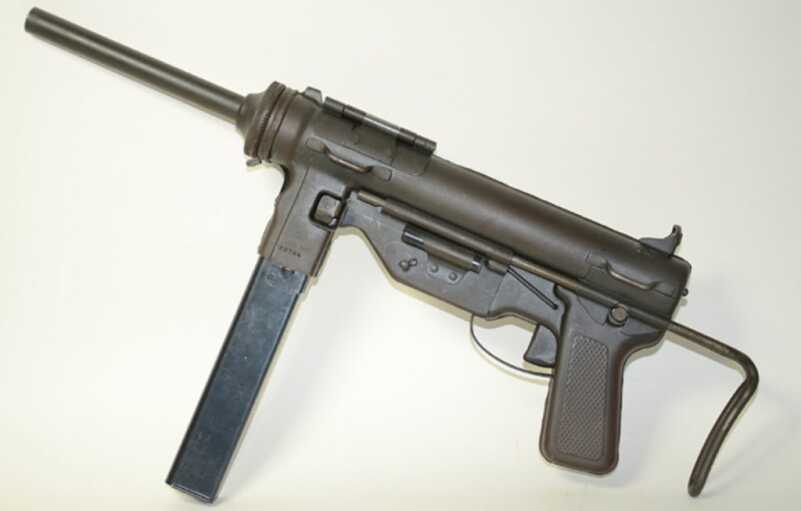
Guide Lamp had perfected the art of steel stampings. Their M3 Grease Gun soldiered on in US military service until the 1990s.
Guide Lamp, the same company that made early M3 Grease Guns, manufactured these weapons. However, this inexpensive single shot .45ACP pistol was never fully embraced by the conventional Allied leadership. Three hundred American workers toiling over an eleven-week span during the summer of 1942 produced around a million copies.
The gun was a crudely manufactured single-shot handgun sporting a smoothbore four-inch barrel. The weapon came in a cardboard box along with ten rounds of .45ACP ammunition and a small dowel to push out the empty cases.
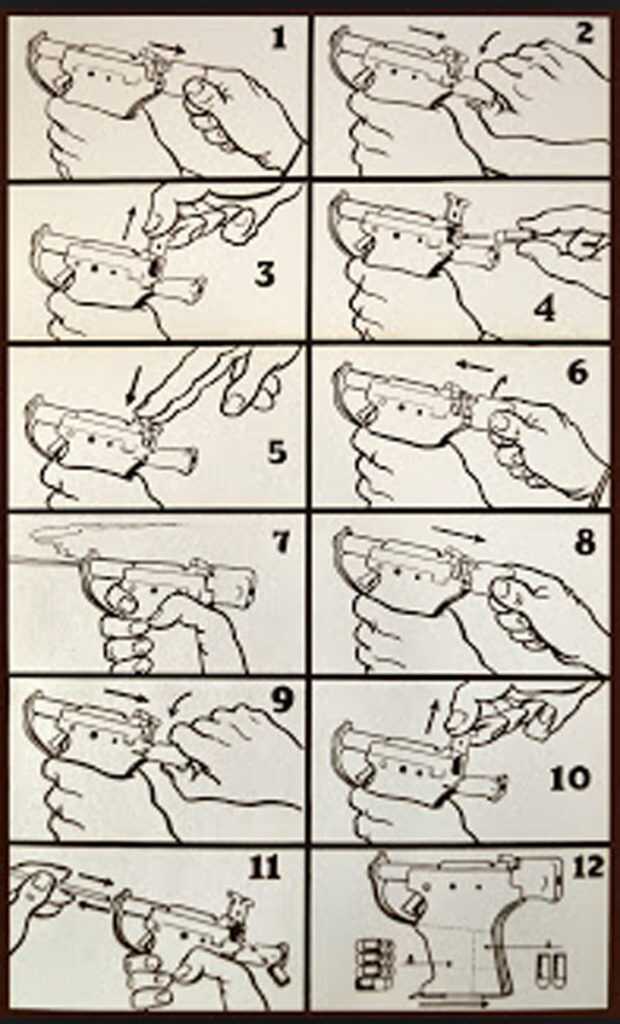
The cartoon operating instructions that accompanied the gun could be understood by most anyone anywhere.
There was also a comic strip instruction sheet that demonstrated the operation of the weapon without words. The FP-45 cost the government a whopping $2.10 apiece. The pistol had only twenty-three parts, most of which were cast or stamped for rapid inexpensive manufacture.
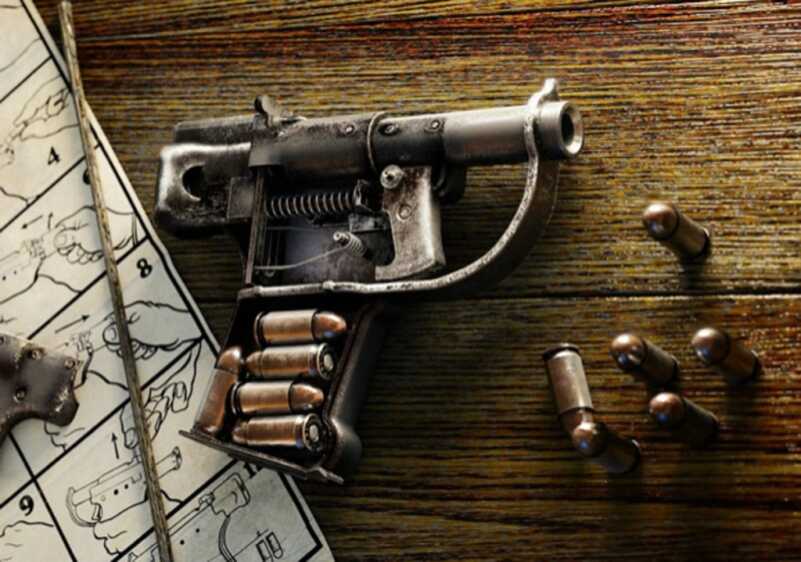
The FP-45 was designed from the outset to be inexpensive and easy to manufacture in large quantities.
The FP-45 was designed to arm insurgent fighters behind enemy lines, and the secrecy surrounding this project was extreme. The barrel was referred to in the supporting development literature as the “tube.” The trigger was the “yoke,” and the firing pin was called a “control rod.” The trigger guard was called the “spanner.” This bit of duplicity was intended to frustrate Axis spies and sympathizers as to the project’s true nature.
Of the half million FP-45 pistols shipped to England for distribution to the French Underground, only some 25,000 made it to occupied Europe. The other half million went to the Pacific theater where a similarly small percentage actually saw action. However, this diminutive gun had an influence on the outcome of the war far beyond the weapon’s small size and questionable parentage.
In the vignette described above, the German Military Policeman being interviewed about the assassination killing of this critical German officer referred to the discarded single shot throwaway gun as a “Browning Assassination Pistol.” However, it is obvious the weapon to which he was referring was the FP-45. He claimed that there were thousands of these diabolical little guns in circulation in France. He implied that the presence of these inexpensive assassin’s tools caused the occupying Germans to keep a wary eye out for French civilians who might sport ill intent.
Impressions
The FP-45 is surprisingly large and weighs about a pound. The butt of the gun is voluminous enough to carry five .45ACP rounds underneath a sliding steel cover. The FP-45 lacks any sights worthy of the term, but that didn’t matter terribly. The smoothbore barrel failed to stabilize the bullet much past twenty-five feet.
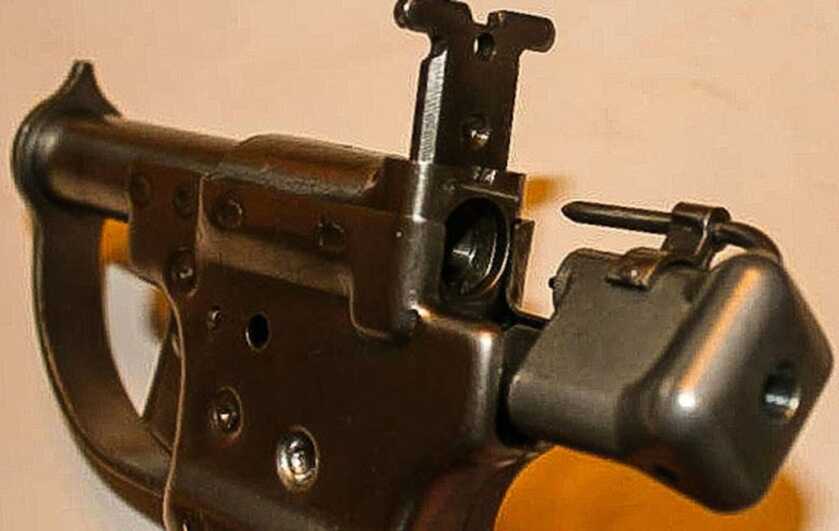
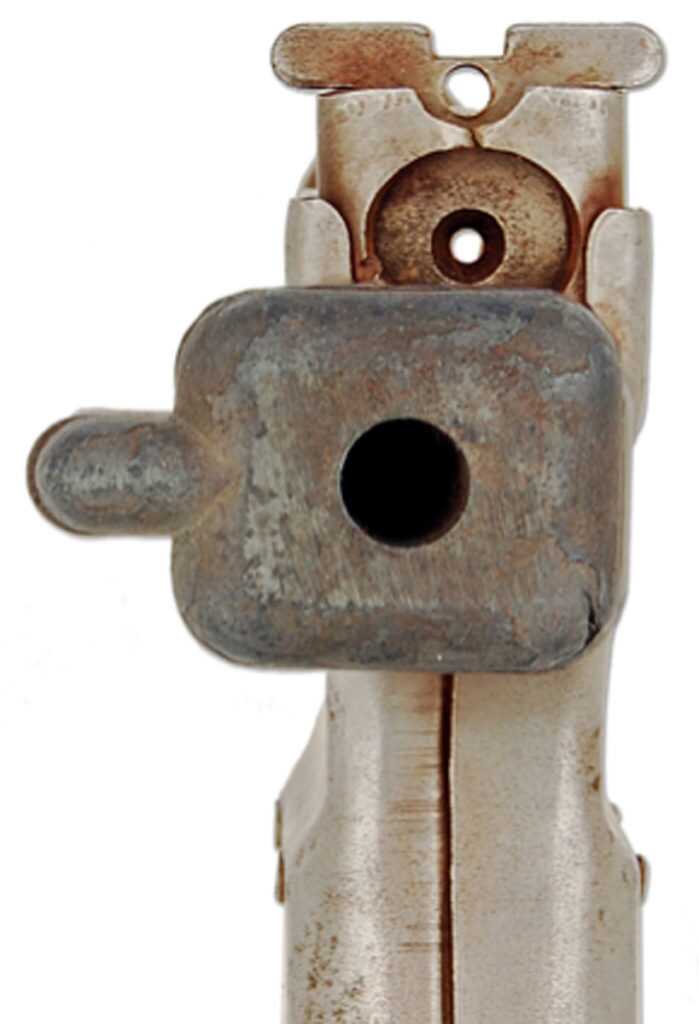
To load the gun you pull back and twist the rear cocking tab to clear the barrel. Lift the rear retainer gate and drop a round in the chamber. Slide the gate down and rotate the cocking piece to the upward position. Point the gun in the general direction of something you dislike and squeeze the trigger. The weapon is really most effective at contact ranges.
Original FP-45 Liberators are available on the collectors market, but they are spendy. Those I have followed on GunsAmerica range between $1000 and $6000. New-made reproductions from the Vintage Ordnance Company run about $500 to $600.
Given the gun’s modest weight and afterthought ergonomics, it was likely a handful to fire. However, this was the pistol you only used to get something bigger, better, and meaner. The intent was to allow a partisan to execute an occupying German soldier and retrieve his weapon. Once the gun was fired you could technically open the action and press out the empty with the dowel to reload. You will obviously not be doing that in a hurry.
Denouement
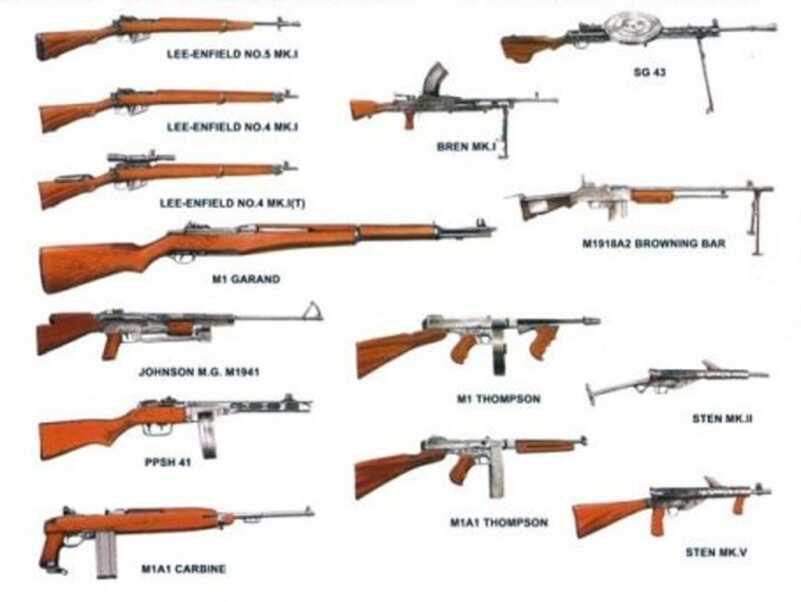
Of all the small arms issued by Allied forces during World War 2, the FP-45 is arguably the most humble.
The FP-45 was a tiny little footnote to the extensive pantheon of wartime Allied small arms. The brass never bought into the idea, so most of these adorable little guns ended up discarded in the ocean or melted down for scrap. Original Liberators lack a serial number or markings of any sort and were fairly crudely executed. Modern Vintage Ordnance guns are perfect replicas with their serial numbers and identifying markings discretely stamped underneath the barrel.
In the early morning hours of June 6th, 1944, an unknown member of the French Underground killed a German panzer officer at bad breath range with an FP-45 pistol. It was hoped that such attacks would substantively undermine the German defense. As is typically the case, ultimate victory was the result of countless poignant and bloody little combats, many of which have been forgotten over time.
The Guide Lamp FP-45 was the People’s Gun that ultimately helped, in its own small way, win the war for the Allies. Despite the limited number of weapons actually delivered to the French Underground, the Germans developed an outsized fear of this ugly little weapon. They imagined French partisans lurking behind every tree with an FP-45 ready to put an end to their military service on the Atlantic Wall. In the end, the gun was effective not so much for what it did but for what it stood for. In the hands of a determined combatant, the FP-45, despite its austere parentage and personality, yet remained a potent killer of men.
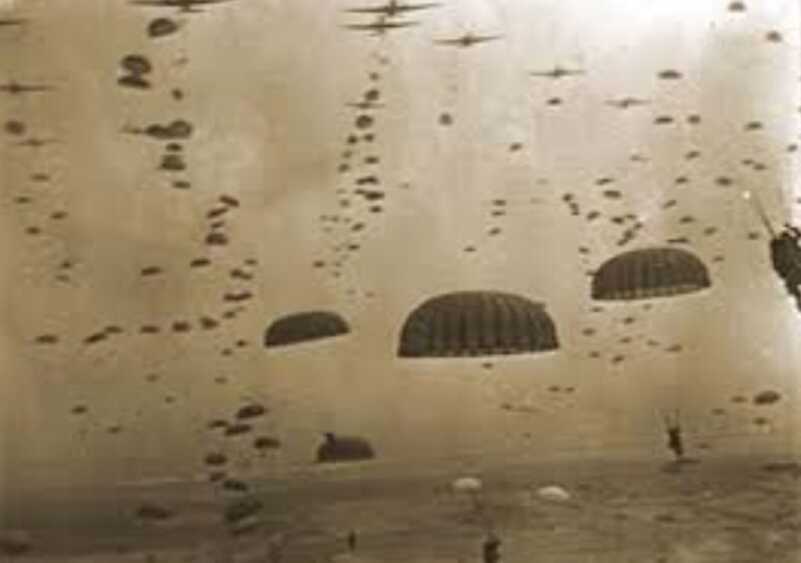
The successful invasion of Western Europe was the cumulative result of a massive theater-wide effort on scales both small and large.
The combat vignette described above is drawn from a book titled D-Day Through German Eyes by Holger Eckhertz. It is a fascinating read drawn together from interview notes conducted by Eckhertz’ father, a German war correspondent active in Normandy prior to the invasion. It is available on Amazon.

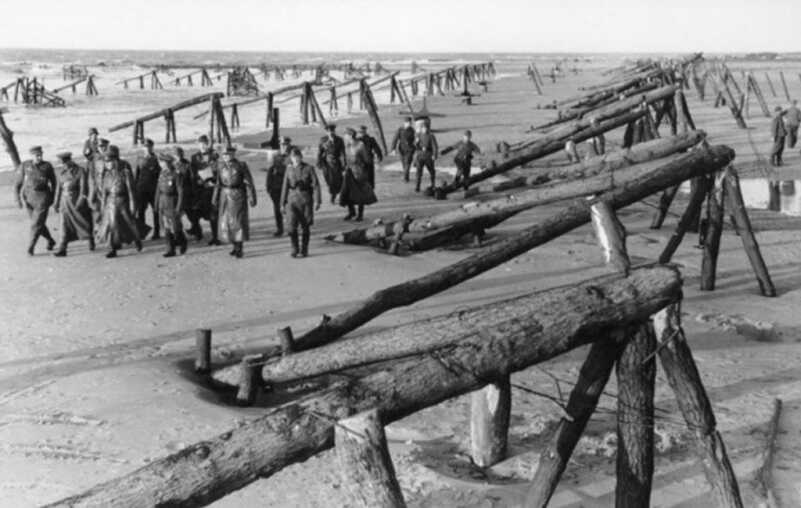
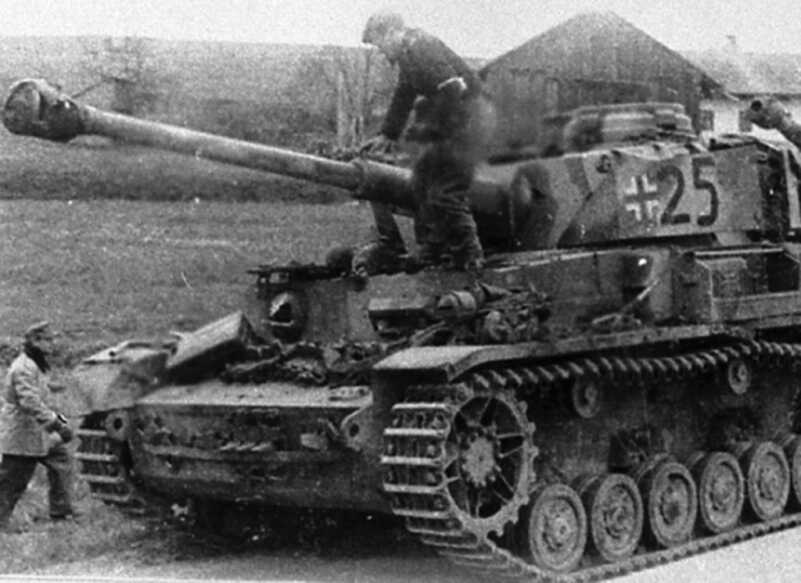
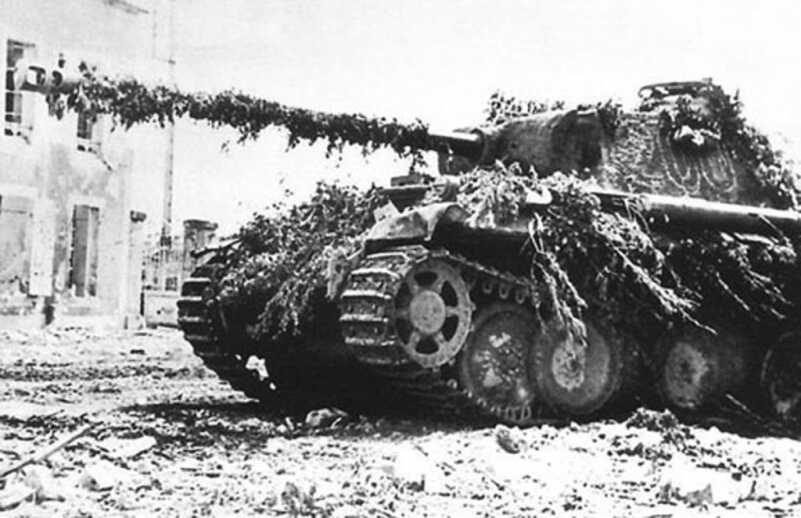
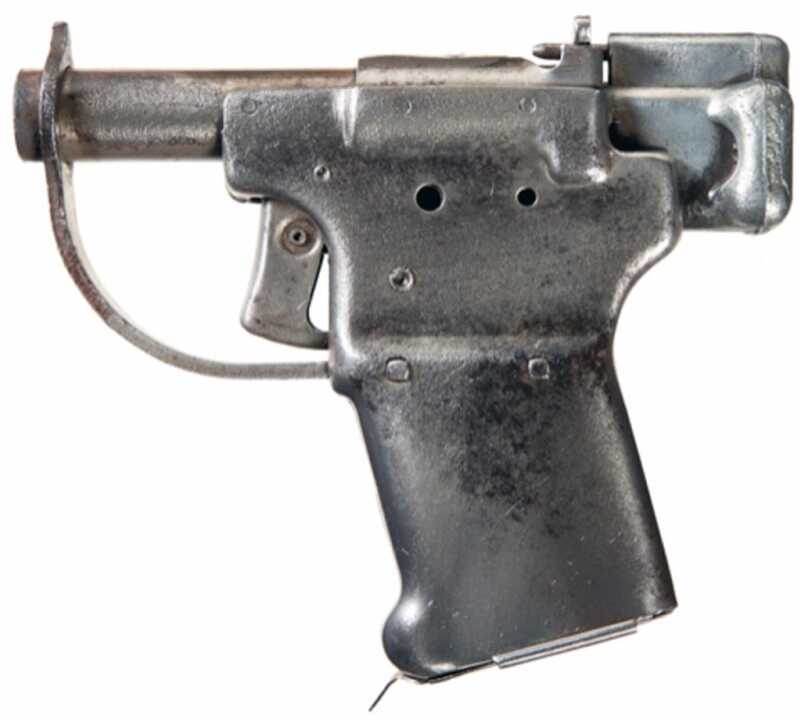
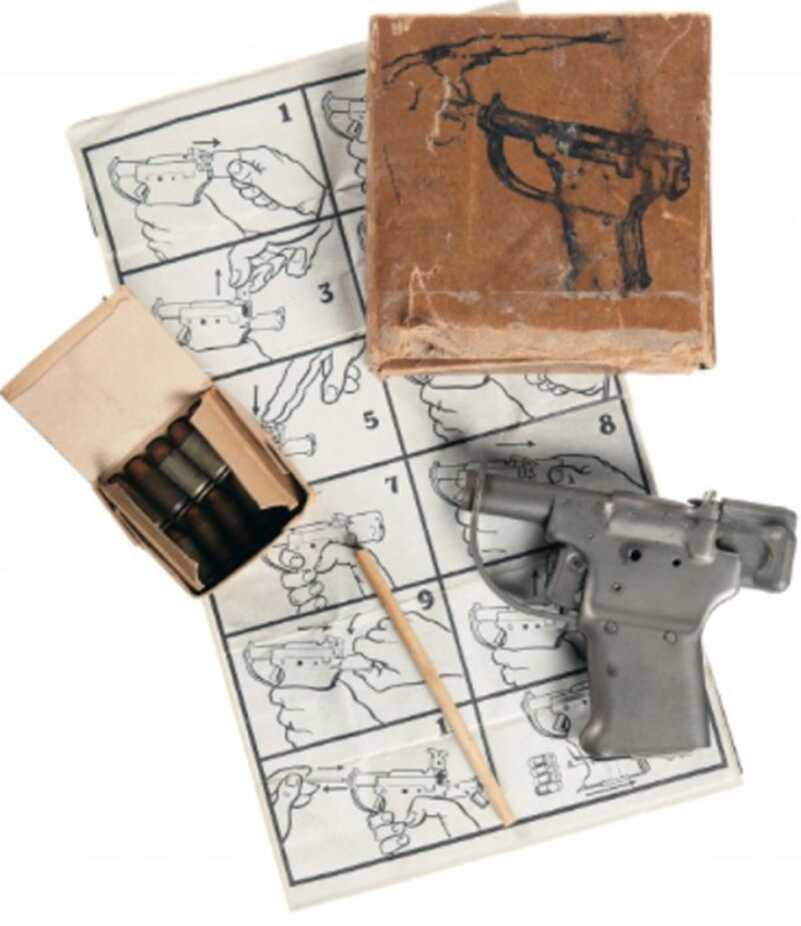
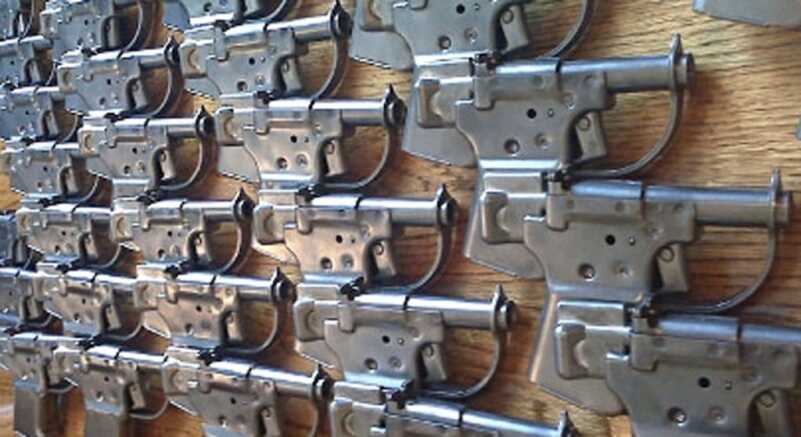
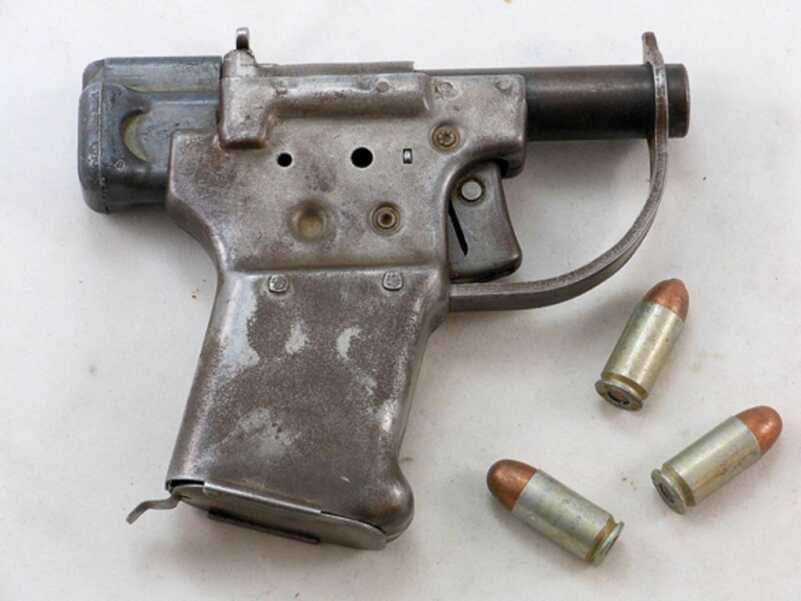
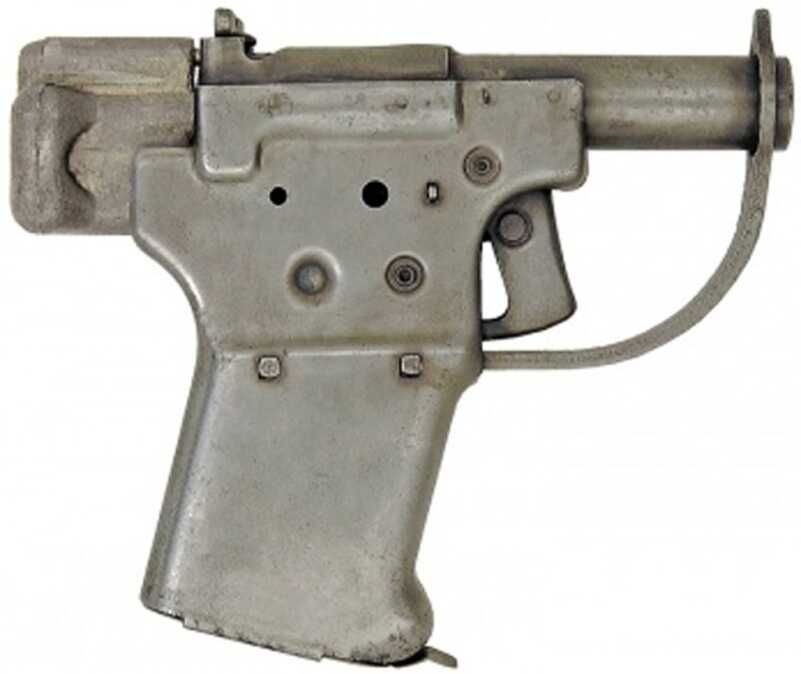
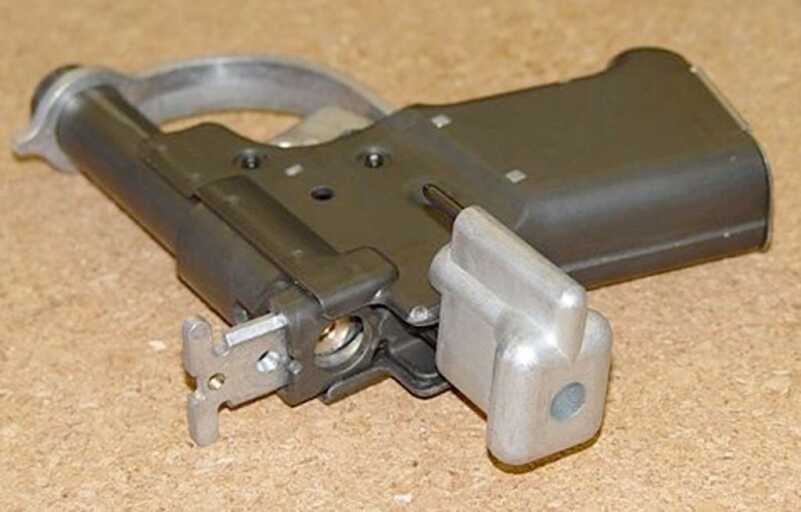
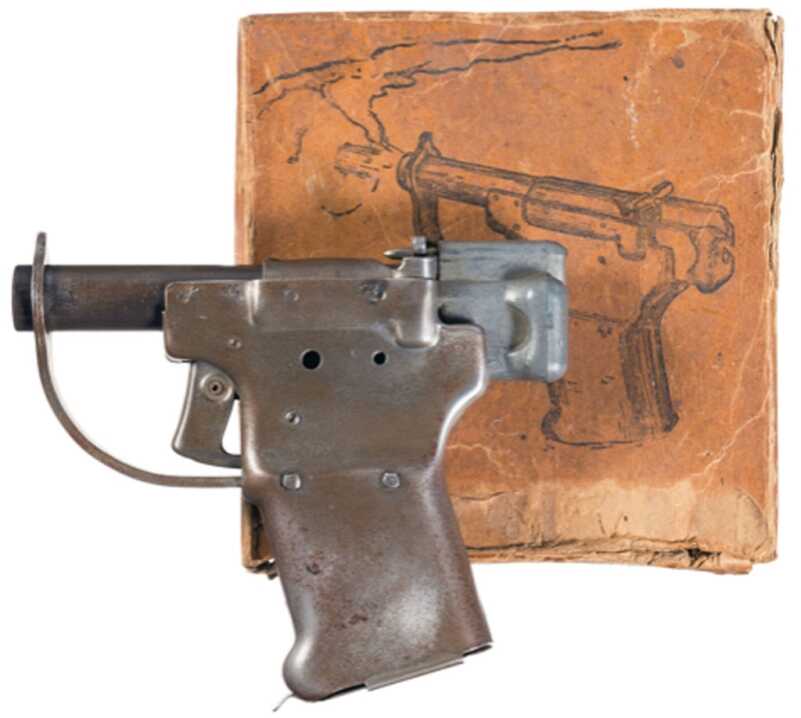
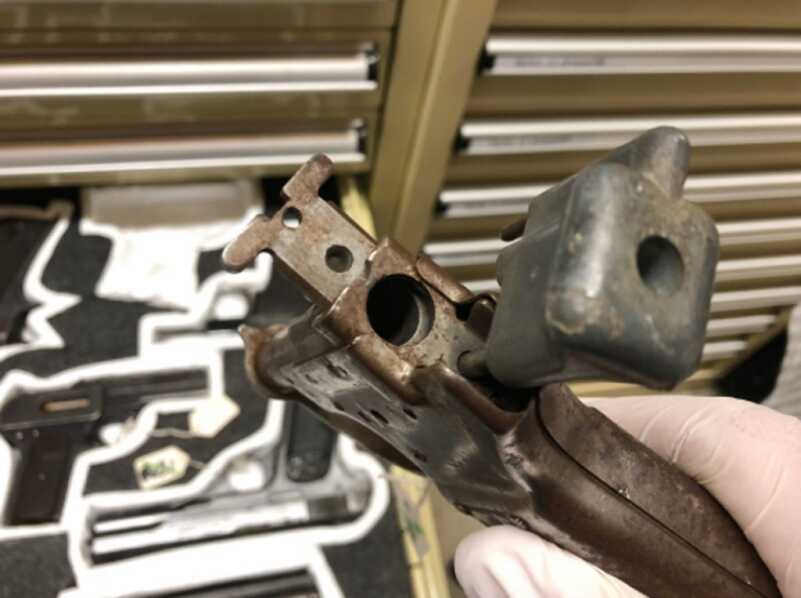
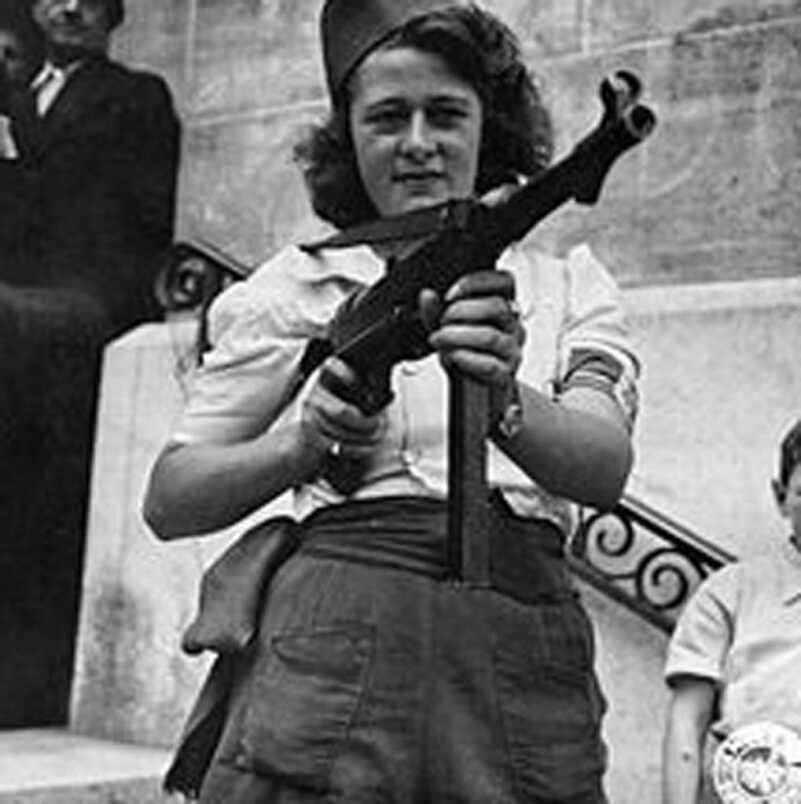
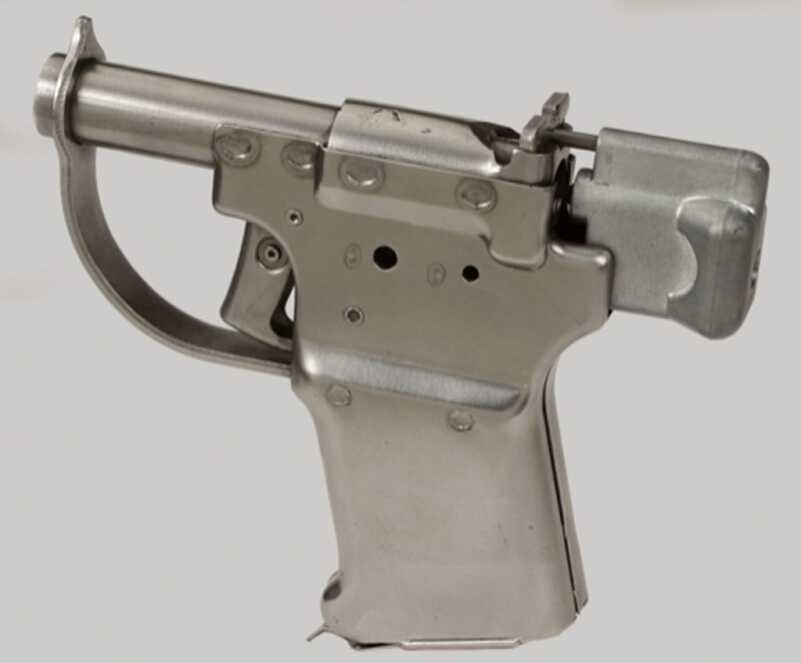
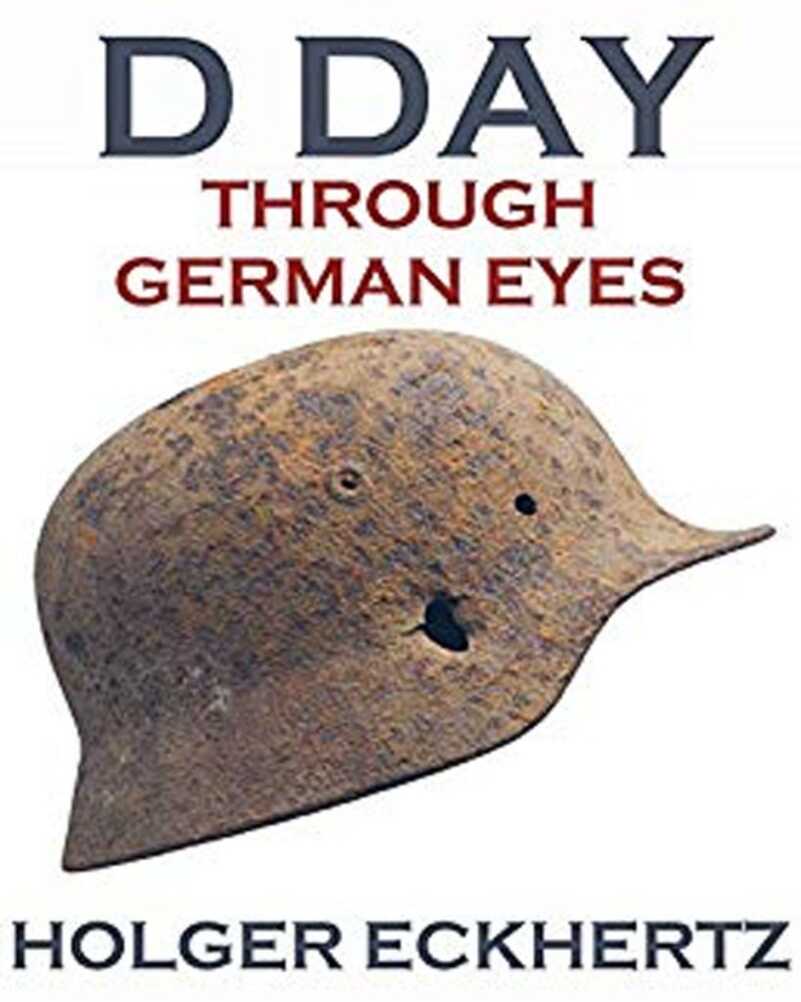
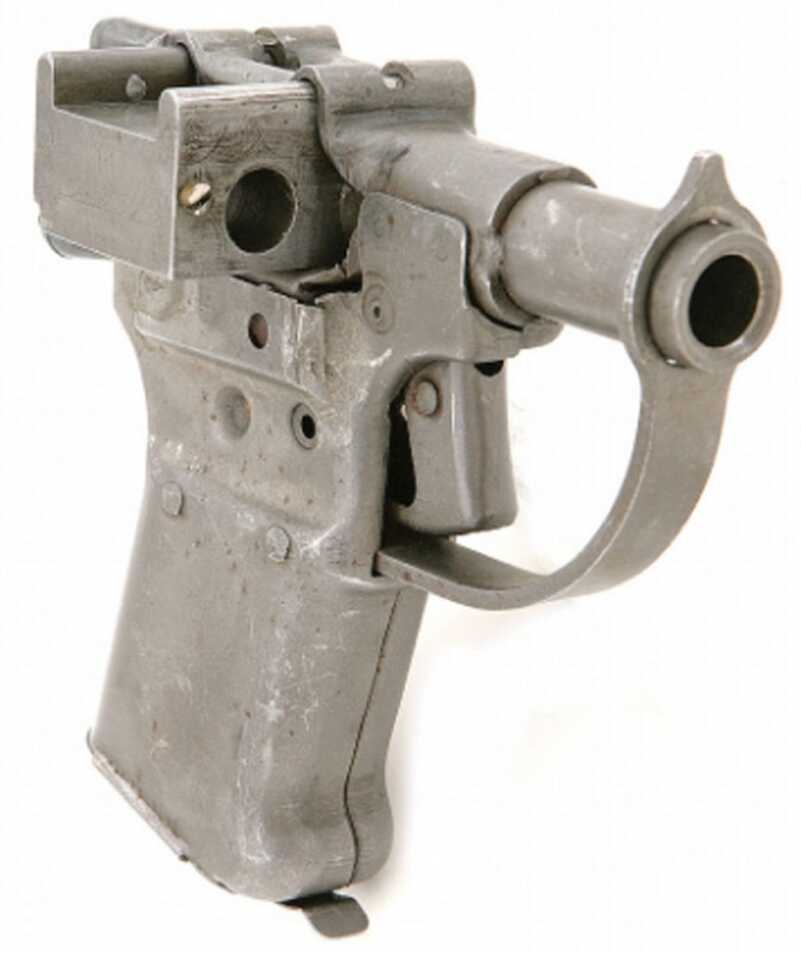
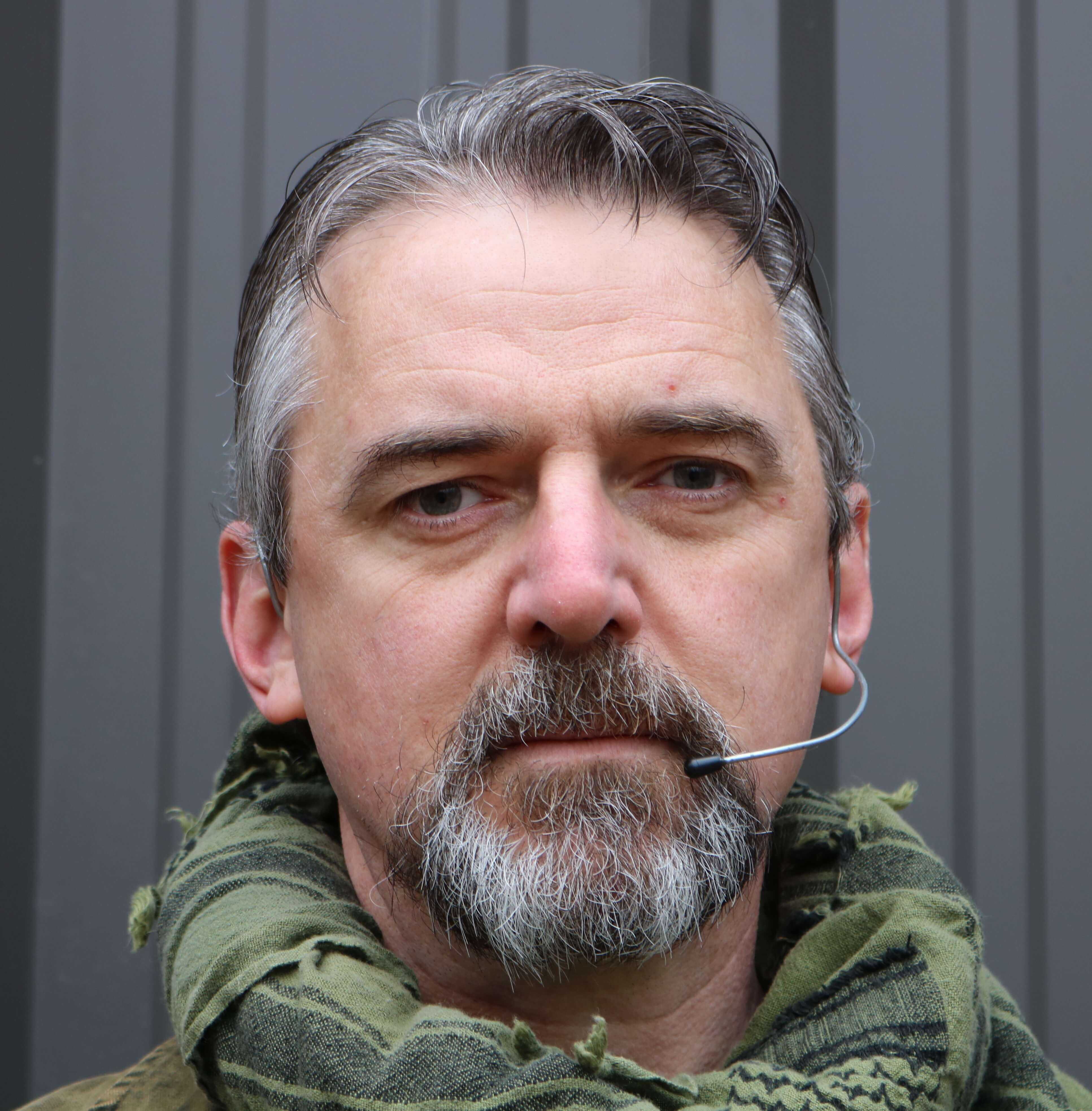
I love the concept of the liberator.
Raining cheap but effective weapons on a oppressed people to be used to to kill the tyrants soldiers and using the weapons and ammo acquired fight to free themselves. We should be dropping a few million of these in places they’d be used.belarus and Hong Kong come to mind
I have a friend in PA. who has one of those .45’s. His wife’s father was a Navy Hard-Hat diver and diving in Manila harbor on a ship job, late war, he found himself standing on many of these weapons, in their boxes, on the floor of the harbor. If he only had known their future value.
I suspect the book containing the anecdote you mentioned (D-Day Through German Eyes) is a fraud.
https://nypost.com/2019/05/11/experts-claim-top-selling-world-war-ii-book-is-filled-with-made-up-quotes/?utm_campaign=iosapp&utm_source=pasteboard_app
I tripped over that reference myself after I submitted this article. Regardless, even if taken as historical fiction the book is a thought provoking read. If it is indeed fabricated it is a well-executed fake. Not meaning to spoil anything, but there is a tantalizing tale about a supposed top secret Nazi WMD toward the end that is a real page turner.
Still another great story sir!
Sights on a smoothbore firing a conical projectile are a bit pointless.
I could picture a young lady perhaps afraid bringing this weapon close to her target in order to be certain of a sure kill.perhaps. wrapped in a pillow to reduce the blast.
This weapon is the equivalent of an urban legend. No sane person would use such a crude and inaccurate weapon. By design you had to be so close that it was a suicide weapon. Did the average German know about this-no, and he would have been far more worried about the daily attacks by bombers in his rear, fighter bombers while on the march, and a seemingly limitless allied army unrestrained by limitations on fuel, ammo, or material.
In short this was a bad joke.
Read about the Warsaw ghetto uprising. They have you and others of your faith penned in and a bunch of you are loaded on trains and taken away never to return.words going around about extermination centers. You and some friends have a odd bunch of handguns. Are you going to use them or get in the boxcar. Imagine what small parcels of 10 each of these weapons could do to allow you to acquire more weapons and ammo.
***
The WW2 equivalent of the Biblical Jael and the Tent Peg that she drove through the ear of a drunken enemy commander who took “refuge” with her for a little action. Both Sisera(?) and the Nazi officer got lots more of it than they expected!
***
Sleep with the enemy’s women at your own extreme risk! Tends to hurt a tad.
***
John Bibb
***
The identification chart has one error on it – It shows a picture of an M1928 or 28A1 as an M1 Thompson. Just had to post. The picture of the M1A1 is correct as near as I can tell. That one had a side cocking handle, and the ’28 had a top cocking handle and Cutts compensator with a machined”artillery” rear sight, the MI just had a strap iron peep hole rear sight, and no compensator.
That’s not the only error on the small arms poster.
The light machine gun in the upper right corner labeled “SG 43” is actually a DP 28, designed for the USSR by Vasily Degtyarev in the mid-1920s and adopted in final form in1928. chambered in 7.62x54Rmm, it was fed by pan-shaped magazines mounted atop the gun in similar fashion as the Lewis Gun, though the DP-28 magazine is driven by an internal spring. It became the Red Army’s standard light machine gun during WW2. It can be seen in Soviet wartime film footage.
The SG 43 was a belt-fed medium machine gun designed by PM Goryunov in the early 1940s.
Had a chance to buy one a long time ago for $400.00. It was an astronomical price for me at the time, so I had to pass on it. Now I hear they are through the roof because of rarity.
Germans: “I thought we’d safely disarmed all of the population.”
Just gut-wrenching to think of the courage and terror of that French forced-assasin. She responded heroically to oppression. The lesson(s) of her fortitude and resolve are more and more lost. Spread her story. Ask a “teacher” to share it. Perhaps then, the great experiment that is Freedom and the U.S.A. can live on.
Another great post. I was under the impression this pistol was never used in combat and thanks for clearing that up.
Guide Lamp was a division of General Motors.
The French Underground needs to rise up again! Nice job exposing this little gem in the rough, the 45 was the perfect one shot round…
Great, well written and informative article with super pics 🙂